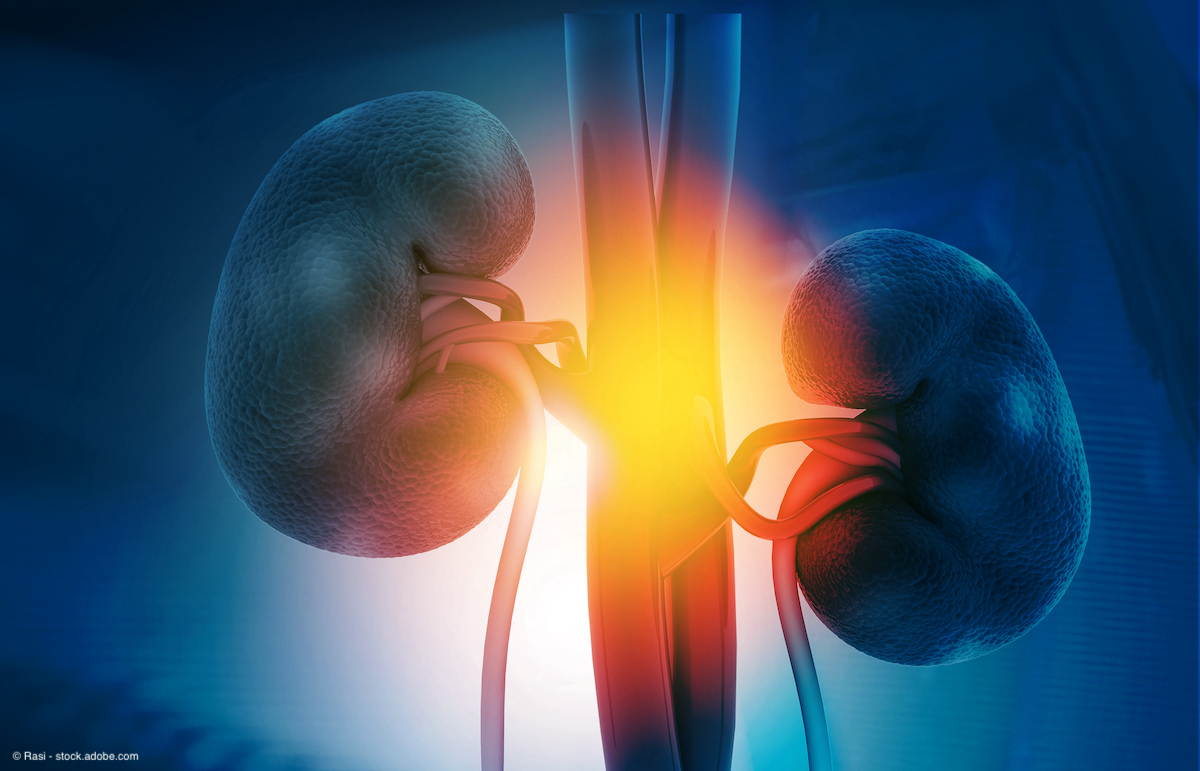News
Article
Systemic therapy after adjuvant IO shows benefit in subset of renal cell carcinoma tumors
Author(s):
"Overall, we found that patients with recurrent RCC following adjuvant IO continued to have responses to different types of first-line systemic therapy," says Talal El Zarif, MD.
Data recently published in European Urology suggest that a subset of patients with renal cell carcinoma (RCC) that recurred following adjuvant immune oncology (IO)-based regimens may benefit from subsequent first-line systemic therapy, including vascular endothelial growth factor–targeted therapy (VEGF-TT) or immunotherapies.1
"This work represents an important step towards better understanding and managing recurrent RCC following adjuvant IO," says Karl Semaan, MD, MSc.

"Pembrolizumab [Keytruda] was recently approved for clear cell RCC in the adjuvant setting, leaving limited data on subsequent therapies following RCC tumor recurrence. Therefore, a multi-center effort was essential to address these questions effectively,” explained co-lead author Talal El Zarif, MD, an internal medicine resident at Yale University, New Haven, Connecticut, in correspondence with Urology Times®. "Overall, we found that patients with recurrent RCC following adjuvant IO continued to have responses to different types of first-line systemic therapy. Interestingly, bone metastases were more common in tumors that recurred earlier following adjuvant immunotherapy."
Overall, data from the study showed that the 18-month progression-free survival (PFS) among patients who underwent subsequent first-line systemic therapy was 45% (95% CI, 34%–60%), and 18-month overall survival (OS) was 85% (95% CI, 75%–95%). The objective response rate (ORR) was 38% and the disease control rate (DCR) was 80% among all patients.
Broken down by treatment regimen, the 18-month PFS was 47% in patients treated with an IO plus IO regimen, 38% in patients treated with an IO plus VEGF-TT regimen, and 48% in patients treated with a VEGF-TT. Additionally, the 18-month OS was 79% in patients treated with an IO plus IO regimen, 82% in patients treated with an IO plus VEGF-TT regimen, and 92% in patients treated with a VEGF-TT.
Data were also stratified by IMDC risk group. Among patients treated with a VEGF-TT, the 18-month PFS was 75% for patients with favorable-risk disease and 36% for patients with intermediate/poor-risk disease. The 18-month OS was 100% in patients with favorable-risk disease and 89% among patients with intermediate/poor-risk disease. In patients treated with an IO-based regimen, the 18-month PFS was 13% for patients with favorable-risk disease and 60% for patients with intermediate/poor-risk disease. The 18-month OS was 89% in patients with favorable-risk disease and 75% in patients with intermediate/poor-risk disease.
Among all patients, 52% (n =49) had experienced recurrence within 3 months of their last adjuvant IO dose, and 48% (n = 45) had experienced recurrence beyond 3 months. Bone metastases were observed in 20% of patients whose tumors recurred within 3 months vs 2.2% of patients whose tumors recurred beyond 3 months (P = .008).
In total, the study included 94 patients with recurrent RCC following IO-based therapy across 29 international institutions. Most patients received adjuvant immunotherapy with pembrolizumab monotherapy (n = 37, 39%), atezolizumab (Tecentriq) monotherapy (n = 28, 30%), or nivolumab (Opdivo) plus ipilimumab (Yervoy) (n = 15, 16%). The median duration of IO-based regimens was 5.5 months. The median time from adjuvant IO initiation to recurrence was 15 months.
Following tumor recurrence, 39% of patients received a first-line VEGF-TT regimen, 28% received an IO plus VEGF-TT regimen, and 13% of patients received an IO plus IO regimen. The remaining patients received local therapy.
The median follow-up for patients receiving first-line systemic therapy was 15 months. The primary end point for the trial was PFS per Kaplan-Meier estimates. Secondary end points included OS, ORR, DCR, and toxicity.
"In this cohort, we showed that available RCC risk stratification tools, such as IMDC criteria, may be useful to guide treatment selection in the post-adjuvant first-line setting for metastatic RCC,” concluded co-lead author Karl Semaan, MD, MSc, a postdoctoral research fellow at Dana-Farber Cancer Institute, Boston, Massachusetts, in correspondence with Urology Times. "This work represents an important step towards better understanding and managing recurrent RCC following adjuvant IO. Future research will build on these findings by investigating novel biomarkers to improve detection of metastatic sites and optimize therapeutic strategies for recurrent RCC."
Reference
1. El Zarif T, Semaan K, Xie W, et al. First-line systemic therapy following adjuvant immunotherapy in renal cell carcinoma: An international multicenter study. Eur Urol. 2024:S0302-2838(24)02499-0. doi:10.1016/j.eururo.2024.07.016
Newsletter
Stay current with the latest urology news and practice-changing insights — sign up now for the essential updates every urologist needs.
















